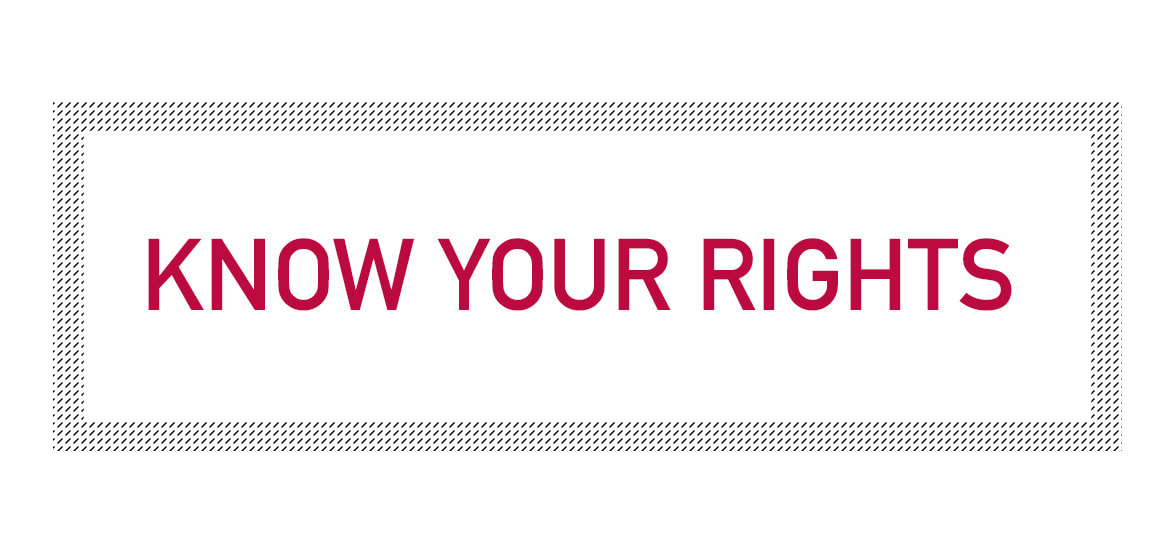|
Know Your Rights-Interacting with Law Enforcement
In Your Car: Present your driver’s license, registration, and proof of insurance. If you’re suspected of drunk driving and refuse to take a sobriety test, the police may arrest you or seize your driver’s license. You have the right not to consent to a search of your vehicle. If the police state they have probable cause, they may begin to search your car without consent. DO NOT interfere, but clearly request the basis of the search and state your lack of consent. If you are given a ticket, sign it. You can always fight the case in court later. On the Street: You are not required to answer any incriminating questions, but you should truthfully answer simple ones. If requested, show your identification. You are not required to consent to a search of yourself or your property. o If police have reasonable suspicion that you have a weapon or illegal substance, they may do a “pat-down” to check. DO NOT resist. In Your Home: Police do not have the right to enter your home without a warrant or an emergency situation. If the police say they have a warrant, ask to see it before letting them enter. If you are arrested in your home, the police can search you and the area around you (usually the room.) If You are Arrested: Specifically state that you would like to remain silent and request an attorney; do not make any statements without your attorney. You have the right to a court-appointed attorney if you cannot afford one. If you are under 18 years old, tell the police and ask for your parents to be contacted immediately. You have the right to a private local phone call after an arrest. You must be taken before a judge or magistrate within a day (or shortest time otherwise possible.) If you are required to post bail after arrest, you may request to have your bail lowered. Do not make any decisions until you have spoken with your attorney. The police can lie to get you to confess, do not be deceived and do not make any statements without your attorney. -If you were injured, call 911. -If you would like to file an official complaint, contact the department where involved officer works. -If you would like further help from your state or local NAACP unit, contact your State Conference office |
NAACP
Evanston/North Shore Branch
Evanston/North Shore Branch
Home
About Us
Branch Leadership
Mission and Vision
Standing Committees
Photo Gallery
NAACP National
Take Action
Volunteer
Become A Member
Donate
Know Your Rights
Stop Hate Crime
Events
Freedom Fund Banquet
Scholarship Program
National Convention
News
For Members
Contact Us
About Us
Branch Leadership
Mission and Vision
Standing Committees
Photo Gallery
NAACP National
Take Action
Volunteer
Become A Member
Donate
Know Your Rights
Stop Hate Crime
Events
Freedom Fund Banquet
Scholarship Program
National Convention
News
For Members
Contact Us
Proudly powered by Weebly

